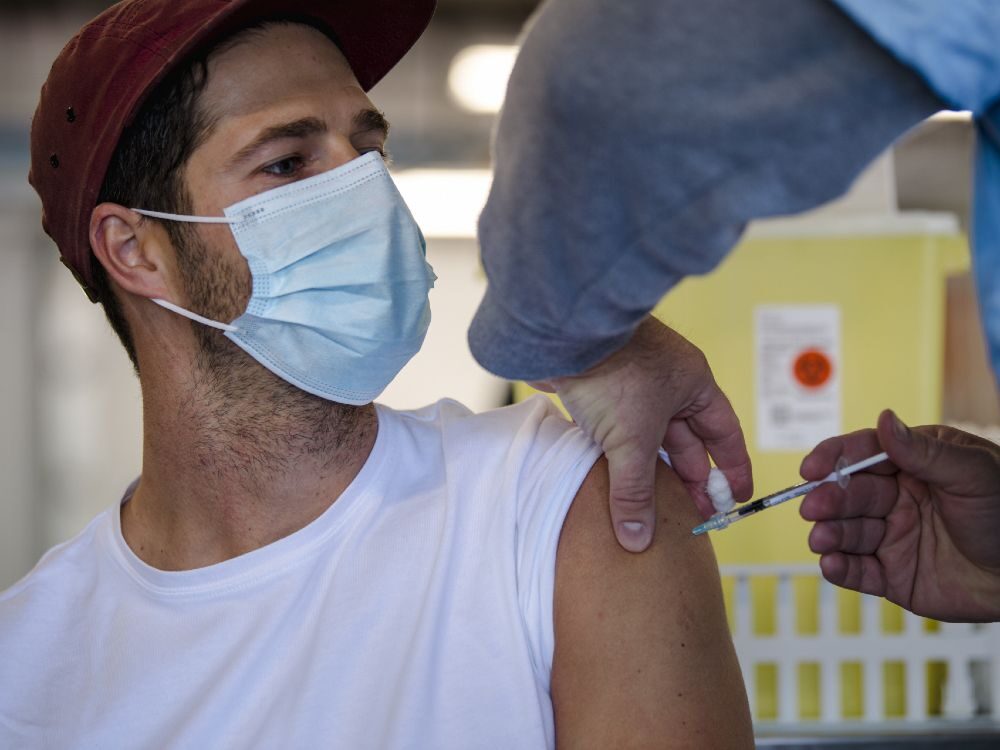
Beskyttende antistoffer faldt kontinuerligt i løbet af de seks måneder efter administrationen af den anden dosis af vaccinen, ifølge en undersøgelse af omkring 5.000 israelske sundhedsarbejdere, der blev offentliggjort onsdag i New England Journal of Medicine. Niveauerne faldt først i et skarpt tempo og senere i et mere moderat niveau.
Forskere verden over forsøger at identificere den kritiske tærskel for antistoffer, der er nødvendige for at forhindre coronavirus-infektion, alvorlig sygdom og død, siger Gili Regev-Yochay, en af forfatterne til undersøgelsen. Sådanne undersøgelser vil hjælpe med at vurdere risikoniveauer for forskellige grupper og de foranstaltninger, der er nødvendige for at beskytte dem, sagde forskeren.
Antistofniveauer viste sig at være lavere hos ældre mennesker end hos yngre og hos immunsupprimerede personer sammenlignet med den raske befolkning, ifølge undersøgelsen fra Sheba Medical Center i Ramat Gan. Antallet af mænds antistof var lavere end for kvinder både på deres højdepunkt og ved afslutningen af undersøgelsen.
Kommentar: Delvist oversat af Sott.net fra Immunity weakens faster in men than women within months of Pfizer's second shot, study finds
The research shows why there are breakthrough infections in individuals who have had two vaccine doses, Regev-Yochay said in an online press briefing. The U.S., which has restricted its booster recommendation to older people and other vulnerable groups, will likely follow Israel's decision to offer a third dose to the entire population, she said.
"I would be more than surprised if we are not going to start to see a lot of breakthrough infections in the United States," among those who have received just two doses, Regev-Yochay said.
The Israel findings were bolstered by a second real-world study from Qatar, published in the same journal, that found the efficacy of the Pfizer-BioNTech shot faded over a similar time period. Protection fell from 77.5% during the first month after the second dose to 20% in months five to seven after the second dose.
Still, the research found, prevention of severe and fatal infections remained strong throughout the study period, reaching 96% in the first two months after the second dose and persisting at roughly this level for six months.
Consistent Data
"The data is consistent," said Laith Abu-Raddad, a coauthor of the paper who studies infectious disease epidemiology at Weill Cornell Medicine-Qatar. "Protection against hospitalization and death is really strong and more durable than protection against infection." Giving a third booster shot helps optimize the protection from the vaccine, he said.
Two other studies from Israel published in the journal also followed up on early reports of heart inflammation following vaccination. Cases of inflammation, called myocarditis, although rare, increased after the receipt of the vaccine, according to one study by the Israeli Health Ministry and Hadassah Hebrew University Medical Center, particularly after the second dose among young male recipients. While cases were usually mild, one was fatal.
Another study by the Clalit Health Services, the largest health-care system in the country, found that the estimated incidence of myocarditis was 2.13 cases per 100,000 persons. The highest incidence was among male patients between the ages of 16 and 29. Most of the cases were mild or moderate.



Læserkommentarer
dig vores Nyhedsbrev